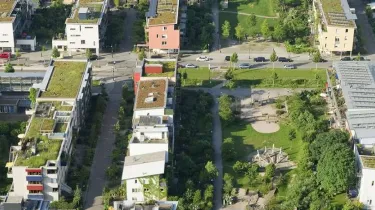
1690 from FernstudiumCheck.de
2203 from Fernstudium-Direkt.de 98% Recommend
Wismar University (Germany)
Master's in Green Architecture


Milesa Jevtic
Your contact person
+49 3841 753 - 7582Master's in Green Architecture
The professional study course Master Green Architecture (taught in english) is being offered by the Wismar University of Applied Sciences: Technology, Business and Design (Germany). The aim of our Master Green Architecture is to provide the tools and the technical knowledge necessary for understanding complex 'ecological building' design.
The inter-university degree programme provides knowledge about ecosystems, sustainable technical cycles, urban and building ecology, in particular energy saving and building construction, planning and design aspects. This will enable you how to apply scientific methods to convey and develop your own ideas independently in India and abroad. Our professors and lecturers are themselves practicing architects, scientists and researchers from a variety of universities and research institutes, bringing with them innovative research and academic experience.
German University Degree
Master of Science (M.Sc.)
ECTS-Credits
90 or 120
Study duration
4 or 6 semesters
Type of study
Part-time course for professionals
Next start
Winter semester 2026/27
Enrolment deadline
until 30 June 2026
Seminars
3 weekends per semester
Study locations (rotating)
e.g. Darmstadt, Wismar, Munich, Bremen, Freiburg, Neuss (Insel Hombroich), Dessau, Münster, Herne
Course language
German
Application Deadline
Next course start: winter semester 2026/27
Application closing date: 30 June 2026
various excursions
German University Degree M.Sc.
holistic concepts for green buildings
4 semester / 90 credits
start: wintersemester
Request Information
Here you can request further information regarding the Master's Green Architecture at the Wismar University. Please fill out the following contact form. We will send information material out to you immediately, free of charge.